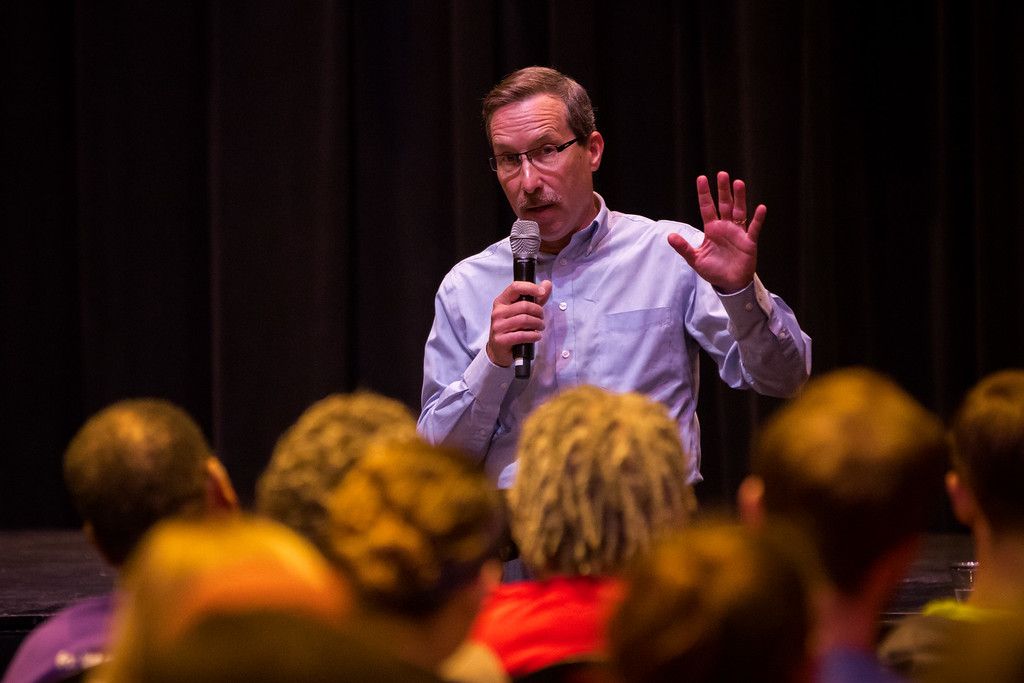by Bruce T. Gourley
Published June 2011
(Baptist Studies Bulletin Archives Index)

Two decades ago a dissenting community of Baptists was birthed. The Cooperative Baptist Fellowship, by name, implied that the organization was comprised of Baptists who valued ministering and worshipping together. Beyond the name, the CBF was birthed in reaction against fundamentalism and for missions.
Other Baptist groups long before CBF were birthed both in reaction against something and for something. The earliest Baptists in 1609 emerged in opposition to creedal community (both ecclesiastically and politically) and for freedom of individual conscience. Primitive Baptists in the first half of the nineteenth century arose in opposition to the new missionary movement in Baptist life and for Calvinism and local church-centric structure. Shortly thereafter, in 1845 Southern Baptists removed themselves from the fellowship of American Baptists at large in opposition to growing abolitionist sentiment among Baptists of the North, and for the purpose of defending slavery as God’s will for the black race.
Among these three Baptist groups, dissension for the sake of individual conscience characterized Baptists of the seventeenth and eighteenth centuries and resulted in their long-term persecution; traditional Calvinist theology expressed in opposition to new religious methodologies birthed Primitive Baptists and spurred initial growth; and cultural accommodation (to white supremacy) integrated into scripture propelled Southern Baptists to a place of lasting prominence in the American South.
As CBF Baptists celebrate twenty years of existence this month in Tampa, which most describes the CBF movement: dissenters, traditionalists, or accommodationists? Let me suggest that at heart we CBFers are dissenters living within a popular culture of religious, cultural and political currents.
Religiously, we are trying to do community built upon the foundation of the freedom of individual conscience – as were the earliest Baptists. It was messy then, and it is no less messy now. As in seventeenth century America, today’s religious landscape is dominated by creedal faith that sacrifices individual conscience for the sake of veneered community. Against this backdrop, we seek to be an authentic community of faith. And as our faith forebears realized, authentic community is not possible apart from individual freedom of conscience. We are religious dissenters.
Culturally, we are intentionally moving beyond the regional religion we inherited from our (largely) southern, white roots. Yet we struggle in the trying. From our pulpits and in our neighborhoods we still strive to pry ourselves away from the cultural chains of southern-imbued racial boundaries, evangelical certainty, gender structures, and biblical literalism. We mostly live in but are out of sync with the South, pariahs in a world of white fundamentalism and underrepresented within the black Baptist community. Uneasy within and largely unknown outside the South, we celebrate and engage a growing diversity within our reach and long for more. We are cultural dissenters.
Politically, we are uncomfortable in an era of ideologies right and left. Our moderate theology translates unevenly in the political realm, and our faith heritage’s greatest convictions expressed in the political arena – religious liberty for all and church state separation – are more appreciated by secularists than by Sunday School teachers. While the howling winds of partisan political demagoguery blow without ceasing throughout our nation and too often find expression in Christian nationalism, we advocate peace, justice and transformation in and through Christ that transcends political loyalties and geographical boundaries. We are political dissenters.
We are, in short, a young and relatively small fellowship of Christian dissenters surrounded by much larger religious, cultural and political forces. If we choose to continue to follow the path of dissension, we may never be religious Goliaths in America or our world at large. Yet as the story of our early Baptist forebears reveals, a small group of faithful dissenters can ultimately effect transformation the world over.
